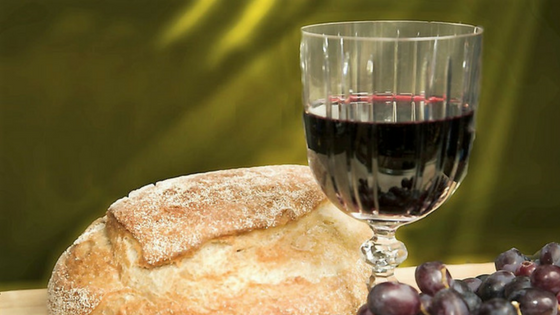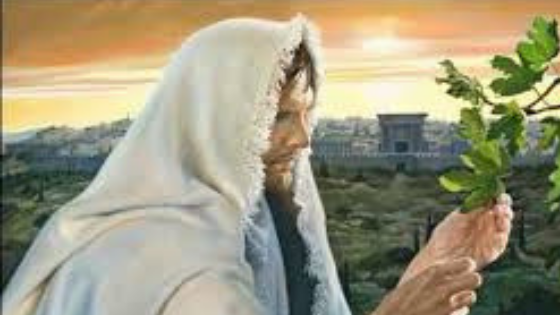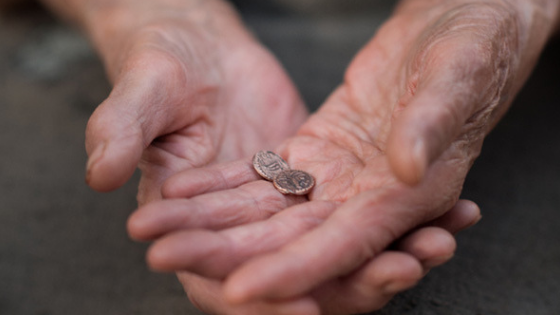Twentieth Sunday in Ordinary Time (19 August 2018)
Proverbs 9:1-6; Psalm 34:2-7; Ephesians 54:15-20; John 6:51-58
Theme: Come … live and walk in the way of insight (Pr 9:6)
Download

The context of John 6 is Pesach, the Jewish feast with its striking symbolism of the sacrifice of the paschal lamb and the unleavened bread. This is a significant teaching moment and Jesus brings to it his discourse on the bread of life. Our reflection on verses 51-58 is enriched by the Proverbs text that recounts Lady Wisdom’s lovingly meticulous preparations for her banquet, a banquet which is “a figure for the delight in sacred learning” (Williams).
Lady Wisdom offers a place at her magnificent table to “those without sense” (9:4), whom Kleinig identifies as those who are unformed/uneducated and so are open to her influence. He notes the offer, the demand, and the promise that Lady Wisdom makes: her invitation to the table extends into her offer of a life of celebration and enjoyment with her; her demand is to set aside immaturity and accept her wisdom as the source and measure of maturity; and her promise refers to her way as the path to vitality and insight. Lady Wisdom’s invitation: “Come, eat of my bread and drink of the wine I have mixed … live and walk in the way of insight” reverberates in the Gospel for today, where Jesus states:
Very truly, I tell you, unless you eat the flesh of the Son of Man and drink his blood, you have no life in you. Those who eat my flesh and drink my blood have eternal life and I will raise them up on the last day; for my flesh is true food and my blood true drink
(6:53-55).
Brown points out (346) that while, in the preceding verses (41-50), “Jesus is the Bread of Life in the sense that his revelation constitutes (the nourishment of) teaching by God,” in verses 51-58, “Jesus is nourishment in another sense, for one must feed on his flesh and blood to have eternal life. The themes of 6:35-51 are duplicated but now in language evocative of the Eucharist” – “The blood I shall give is my own flesh for the life of the world.” In conclusion, “Jesus feeds his disciples through both his revelation and his Eucharistic flesh and blood.”
Brown comments that Wisdom is a very important motif in Johannine Christology (346, note 32). In Sirach 24:21, Wisdom identifies herself with the food and drink she offers: “Those who eat me will hunger for more, those who drink me will thirst for more.” Jesus too identifies with the bread he offers and makes of it a sign of his covenant: “Those who eat my flesh and drink my blood abide in me and I in them. Just as the living Father sent me and I live because of the Father, so whoever eats me will live because of me” (6:56-57).
Ephesians speaks to the quality of life within that covenant. Brown observes that “while in Colossians the mystery revealed in Christ is God’s plan for salvation for the Gentiles, in Ephesians the mystery is the union of Jews and Gentiles in the same Body of Christ” (629, note 21). In Eph 5:10 the author advises: “Try to discover what the Lord wants of you” and then in 15-20 provides some direction to enable them to “recognize what is the will of the Lord” (17): “be filled with the Spirit, sing psalms and hymns and inspired songs among yourselves,” and “always and everywhere give thanks to God who is our Father, in the name of our Lord Jesus Christ.” The spirit of thanksgiving finds its place at the table of Lady Wisdom, and permeates the relation of Jesus with the Father.
Reflection and Discussion: 1. Lady Wisdom counsels us to “live and walk in the way of insight.” What might that mean in your life? What might it mean for your faith community? 2. How is gratitude finding expression in your life now?
Bibliography: Brown, Raymond, An Introduction to the New Testament, pp. 344-349, (Doubleday, New York, 1997); Internet articles: Kleinig, John W., “The Banquet of Wisdom: An Exegetical Study of Proverbs 9:1-12”; Williams, Gabriel, “Wisdom Christology and the Bread of Life.”
This week’s Sunday Gospel Commentary was prepared by
Diane Willey, nds, M.A., Canada, Bat Kol Alum 2005, 2006
dianewilley@hotmail.com
[Copyright © 2018]
……………………………………………………………
PLEASE NOTE: The weekly Gospel commentaries represent the research and creative thought of their authors, and are meant to stimulate deeper thinking about the meaning of the Sunday Scriptures. While they draw upon the study methods and sources employed by the Bat Kol Institute, the views and conclusions expressed in these commentaries are solely those of their authors, and do not necessarily represent the views of Bat Kol. Questions, comments and feedback are always welcome.
………………………………………………………………
Bat Kol Institute for Jewish Studies, Jerusalem
1983-2018
Christians Studying the Bible within its Jewish Milieu, using Jewish Sources
Website: www.batkol.info; gill@batkol.info.



